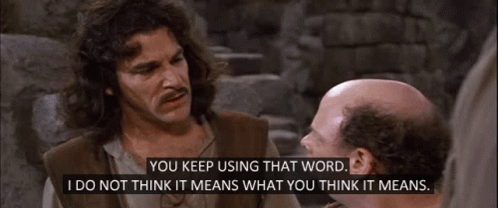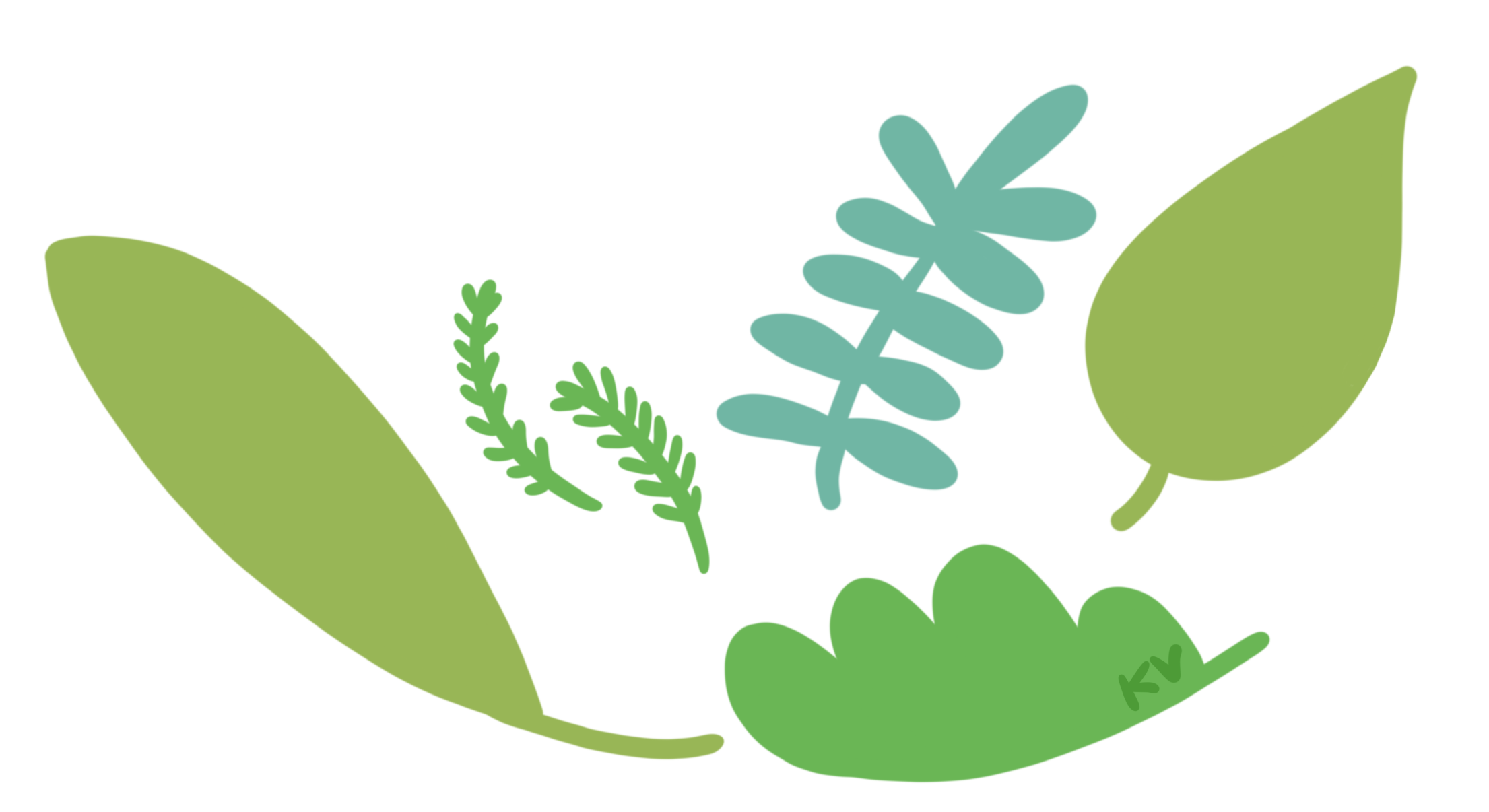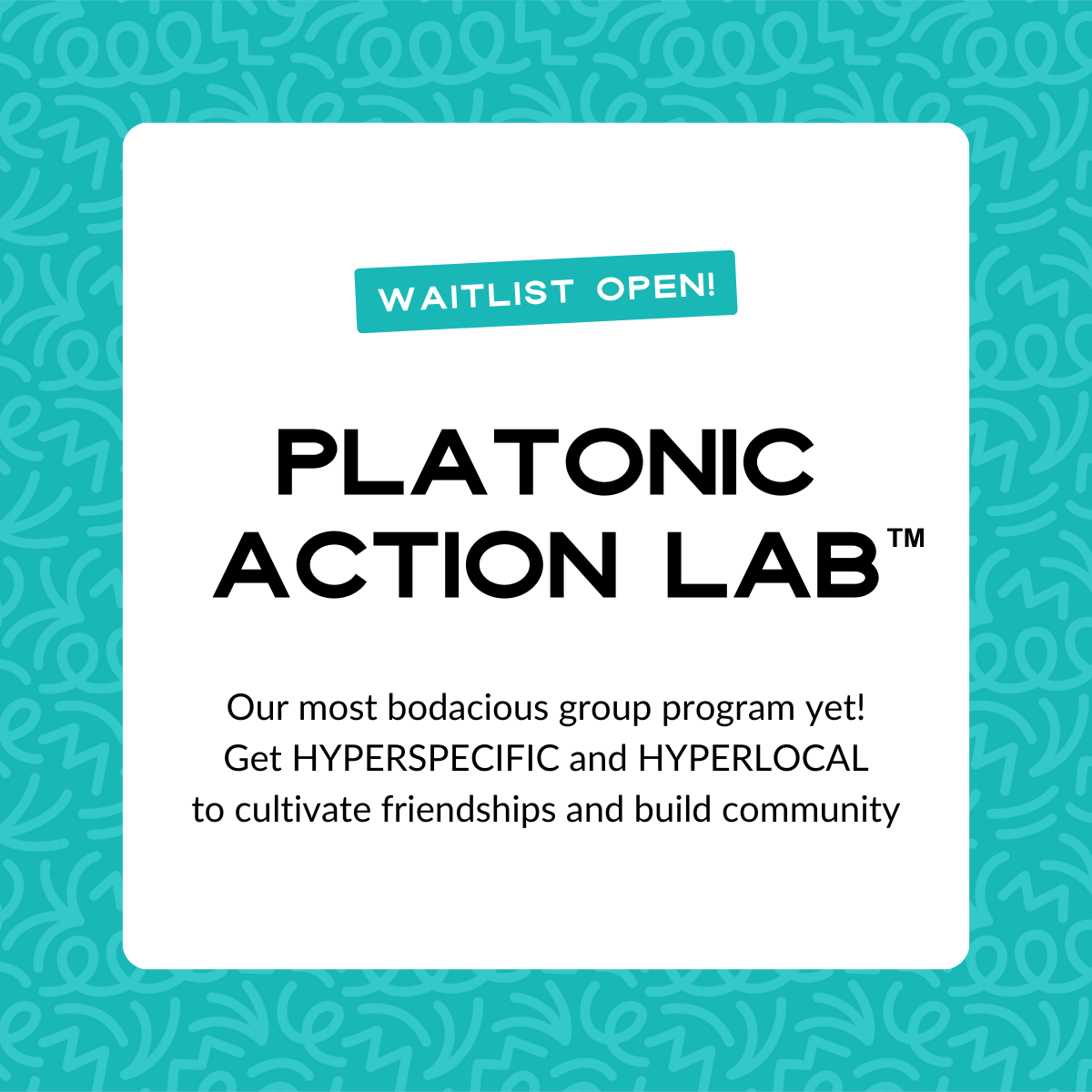Organic Friendship 101
One of the myths about friendship that holds people back from making the platonic connections they want during adulthood is the idea that everything is supposed to happen “organically” — and typically the word “organic” here is supposed to be synonymous with: effortless; without planning; without intention; without trying of any kind because in this mindset, trying would be a force-y, unnatural, cringe, inauthentic machination.
Often when people say: “I just want my friendships to happen organically.”
What they mean is: “I just want my friendships to spontaneously appear and then grow deeper without me having to put in any special effort.”
Using the word “organic” as a stand-in for “do nothing and let it happen on its own” is hilariously ironic because, in reality, the process of growing any crop organically is far from effortless.
When can happen if you let “organic = effortless”
Allow me to paint you a picture of what happens when you take this idea into the garden…
Between 2023 and the start of 2024, we Californians got 31 atmospheric rivers dumped on our heads, many of them falling back-to-back over the last few winter months. [Fun fact from the LA Times: A single inch of rain falling over one square mile is equal to more than 17 million gallons of water, which is enough to fill 26 Olympic-sized swimming pools.] This seemingly unstoppable deluge made for a looooot of days indoors on the couch and zero garden maintenance for months — allowing the garden to unfold “organically.” Guess how that played out. My previously peaceful and gorgeous garden morphed into a dread-and-panic-inducing Weed City. (Not that kind of weed.)
The plants I’d been trying to grow on purpose have been getting choked out by opportunistic and abundantly-hydrated weeds that swooped in to occupy every available millimeter of space. This past Saturday it took a four-person, multi-hour, weed-pulling party to wrangle back some order and beauty out of the jungleriffic chaos.
When outcomes we care about are left to just “unfold naturally,” they usually either descend into disorder, dissolve in entropy, or drift into the universe of missed opportunities. A similarly unsatisfying outcome often awaits you if you bring zero intention and zero purposeful action to friendship in adulthood.
For example:
You might find yourself at 37 years old, talking to your houseplants, asking them far too loudly where all your friendships went.
You might find yourself staring perplexedly at a calendar that was supposed to hold meals with friends, memory-making adventures, and soul-enriching experiences of community, but instead it gets filled with weeds: distractions, mindless busyness, and hour-evaporating social media scrolling.
You might find yourself actually hosting the get-together that you hoped would lay the groundwork for deep friendships, then watch in horror as it degrades right before your eyes into flimsy superficial small talk, and you want to escape from your own party.
This is what can happen if you don’t purposefully tend your friendship garden.
What organic really means
The next time you hear someone using the word “organic” to imply “effortless”, remember that in the plant world, organic farming is actually more work than conventional farming. It’s not for the lazy or faint of heart.
Instead of just spraying your crop with herbicides and pesticides to keep them from getting swallowed by weeds and eaten by bugs, organic farming requires impeccable planning and human intervention.
You gotta invest in more complicated forms of pest control and pull those weeds by hand. And instead of hosing everything down with chemical fertilizers, you need to either make or acquire compost, which costs either time or money, and then you have to work it into the soil manually.
It also takes more land (aka more $) to grow organic crops, because the yields are smaller than with conventional farming. Very few things about organic farming or organic gardening are easy or effortless.
How to actually grow organic friendship
If you want your friendships to grow “organically,” by all means, go for it! — but make sure you know what that word really means. Growing food and plants (and friendships!) organically means taking action on the following best practices.
1) Conserve biodiversity and promote ecological balance. Apply this in friendship with careful seed selection and creating opportunities to connect with friends at different intimacy levels including strangers, light acquaintances, activity buddies, casual friends, close friends, intimate friends.
2) Use life-enriching fertilizers. Apply this in friendship by offering the kinds of invitations, gatherings, introductions, connection-enhancing questions, and well-timed, well-portioned self-disclosures that will most likely result in the type of growth you’re trying to achieve.
3) Consciously and gently remove the things you’re not trying to cultivate (like those slugs that keep eating your baby dahlia shoots and that itchy crabgrass invading your lavender bushes). Apply this in friendship by establishing clear boundaries and removing toxic or unhealthy friendships.
4) Promote sustainability. Land and water, like time, are limited resources. Apply this in friendship by being honest about how many friendships you can realistically maintain. You might also choose to stay mindful of reciprocity; how much you’re giving and getting from your friendships. Avoid overcommitting, over-taking, or over-giving. Give, receive, and share in ways that promote balance and long-term equilibrium.
I hope today’s post helped you think about the word "organic" differently when you think about friendship. Organic doesn’t mean effortless. Organic food is grown with a high degree of planning and intention to ensure a productive yield — and the same is true for organic friendships. 😉 Organic, nutritious connections are more likely to bloom and thrive in gardens that are well-prepared and well-tended. I hope you’re up for the task. I’ll see you in the garden. 💪🏾👩🏾🌾
Putting it into action
One of my Platonic Action Lab™ alumni who I’ll call Penelope (not her real name) emailed me the other day to give me an update on the project she started during PAL, which she called The Food-Friend Ecosystem. She wanted to connect with local folks who are passionate about community, growing food, fermenting, and self-sufficiency.
So far, by applying the lessons from Platonic Action Lab, she’s been wildly successful. She’s connected with over a dozen people who share her passion and enthusiasm. At her most recent cooking-together evening, six folks came over to make and share a meal and discuss plans for future food-n-community based projects together. She said, “It all felt so familiar and heartwarming - I loved every second of it.”
To give you some more context, at the start of the PAL journey, Penelope said, “I wanted to do something like this in the previous city I lived, but somehow never managed to find the energy, or I doubted that I could find the right people, or didn’t know where to start.”
She committed to Platonic Action Lab for eight weeks. During the program she took six very specific action steps. (And she still worked her regular job and took a break during one week when she wasn’t feeling well.)
Results: She now has a big list of folks in her local area who want to build toward the same hyperspecific vision as her. On their docket: more potlucks, foraging walks, farming, beekeeping, co-working sessions to plan and implement each other’s projects, discussion groups, collective/shared leadership, and community film nights at her local brewery. ✨🎉
Penelope said, “I keep thinking about the amazing power of PAL, the sense of support and empowerment.” She’s feeling it because I intentionally designed Platonic Action Lab to champion these values. The program can support you whether your actions garner more results than you're ready for and you’re kinda freaking out, or if you’re not quite sure that your plan is working so you need encouragement and momentum to keep going.
Want a success story of your own? Add yourself to the waitlist for the upcoming cohort of Platonic Action Lab, and I'll be in touch soon.





